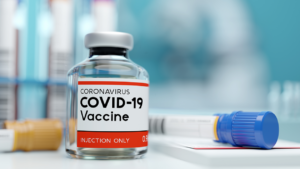Canada approves the vaccine made by Pfizer and BioNTech, and shots may begin next week.

The regulator, Health Canada, said that it completed a full independent review of the data on the vaccine’s safety and effectiveness. While Britain approved the vaccine earlier, it did so on an emergency basis; the approval was limited to a single production run and largely relied on Pfizer’s analysis. Bahrain has also issued an emergency approval.
“It’s a testament to the work of regulators internationally,” said Dr. Supriya Sharma, the chief medical adviser at Health Canada. “It’s an exceptional day for Canada.”
Canada has ordered a total of six million doses from Pfizer. Maj.-Gen. Dany Fortin, the Canadian military officer overseeing the distribution of the vaccine to provincial health care systems, said that Pfizer will start shipping the vaccine from a plant in Belgium on Friday. That could make it possible, he said, for Canadians to begin receiving shots as early as next Wednesday.
If that timeline holds up, Canadians may receive injections of the vaccine before Americans do, despite the fact that Pfizer is based in the United States. Canada expects to receive an initial batch of 249,000 doses. Each person will require two doses.
Dr. Sharma said that the vaccine was subject to the same degree of review as any previous drug or vaccine. But to accelerate that process, Health Canada began reviewing data from clinical trials and manufacturing tests as it was being generated, allowing for a “rolling review.” In the past, the department only opened reviews when all trials and tests were complete.
She said that the final data needed for approval arrived late Tuesday evening and was reviewed overnight, which allowed the approval to go forward.
Canada’s review, she said, supported Pfizer’s finding that the vaccine was 95 percent effective.
When asked why her group was able to approve the vaccine ahead of the Food and Drug Administration in the United States, Dr. Sharma said, apparently jokingly, “we’re just better.”
She added, “We’re not in a race with any other regulator, we’re trying to beat the virus.”
It will be up to Canada’s provincial governments to decide who will first be vaccinated. Dr. Howard Njoo, the country’s deputy chief public health officer, said a federal panel has recommended that the first injections be given to people over the age of 80, residents and workers of long-term care homes, health care workers and Indigenous communities.
François Legault, the premier of Quebec, said his province will first target long-term care homes, which have been the main source of Covid-related deaths in the province.
The vaccine will be distributed to provinces based on their populations. But because the Pfizer-BioNTech vaccine must be shipped and stored at extremely low temperatures until shortly before use, Major General Fortin said that it will not be sent to Canada’s remote and sparsely populated northern territories.
For now, the Canadian regulator has approved the vaccine only for people over the age of 16; it is waiting for more data before approving the vaccine for children.
Dr. Sharma said that the initial data suggests that immunity from the vaccine will be sustained, but more time is needed to determine how long it remains effective.
Three other vaccines are in the midst of reviews in Canada. One from Moderna, another company based in the United States, is closest to approval, she said.
Andrea
Covid-19 Expert




